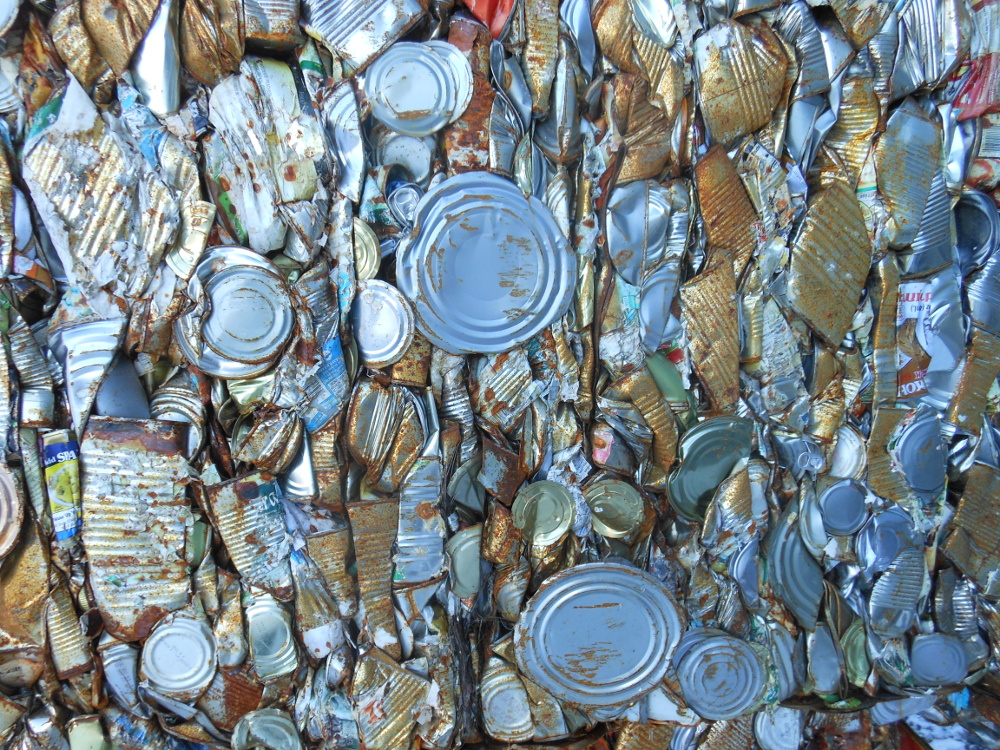
Rates for garbage service in Petersburg may increase, whether or not the borough continues or reduces its collection of recycled materials. That curbside collection is costing the municipal government more than trash disposal. But a consultant told the borough assembly this month that garbage rates should be boosted under all options for recycling.
The borough has been offering weekly curbside collection of unsorted materials since early 2016. But it’s losing money with that service. The borough’s public works director Chris Cotta explained the problem was created with a loss of markets and value for recyclables.
“The model that our recycling program was built on depended on the values of those commodities to offset the increased cost of recycling collection and disposal,” Cotta said. “So now we’re looking at a situation currently where our recycling program’s costing us money instead of being a bottom line benefit to the department.”
The borough retained a Redmond Washington consulting firm, FCS Group, to look at rates in all utilities, including revenues and expenses in the sanitation department and options for recycling. That company’s Matt Hobson told the assembly that Petersburg isn’t alone in seeking solutions.
“In Alaska since 2017 several communities have looked at or implemented changes to their recycling program, primarily just reducing the list of materials that are hard to recycle, or removing them from the recycling program, such as mixed paper, or some of the mixed plastics,” Hobson said.
The consultant looked at four options: keeping the status quo, reducing collection to every other week and decreasing the types of materials collected, or ending collection and switching to drop off only. The fourth option would be ending the borough’s recycling program. But Hobson said climbing costs in the department would require rate increases with or without recycling.
“So if we were to maintain the existing recycling program, we are forecasting annual rate revenue adjustments of about 5 percent per year,” Hobson said. “As you move to each of the other three scenarios, I would like to emphasize that in each case we are anticipating revenue adjustments in all four scenarios. So reducing our recycling service, or changing it substantially, we don’t expect that that will reduce our expenses, it’s simply going to slow the increase that we see in our expense forecast.”
Those rising costs are from the borough’s contract with disposal company Republic Services, which has annual rate hikes. Petersburg pays that company to ship both trash and recycling to Washington state. But other local expenses in that department are also forecast to increase each year by three percent.
So what would rate hikes look like?
To keep the existing recycling service, the most common residential service, a 32 gallon garbage cart and recycling service, would see monthly bills increased by $8.43 a month more on garbage bills after five years.
Cutting collection to every other week and reducing the types of materials collected would require a three percent a year rate hike. That would translate to an increase of $4.86 a month after five years.
Going to drop off only would require a two percent annual rate hike. That could translate to a five-year change of $3.17. But that depends on whether customers keep or upsize their garbage cans in response.
Likewise, eliminating the recycling program altogether could lead customers to go to bigger garbage cans in response. That option would still require a one percent a year rate hike. And it would mean a boost to monthly bills of $1.56 after five years for people keeping the same size can.
Sunny Rice spoke on behalf of the local group Reduce Plastic Use Petersburg. She asked the assembly to continue the recycling program and called on the community to lower plastic consumption and production of trash overall.
“We need to recycle the plastics that we must consume as best we can and to help cover those costs until the market improves we need to reduce overall waste disposal costs by reducing the total weight of our trash,” Rice said. “Our ideas, that we’re happy to work with the assembly on, include increasing participation in the glass recycling program, getting the maximum value from the recyclables we do collect and encouraging composting.”
To that last point, the borough’s public works director Cotta said he liked the idea of more composting. He noted that each ton removed from the community’s waste stream saves the department 128 dollars in disposal and transport costs. He thought a composting program would have to be cost effective or led by a different local entity.
Cotta also noted he couldn’t predict future markets for the recycled material.
“You know the plastics is one thing that has changed recently, that plastic has become much less valuable to recyclers,” Cotta said. “And so we were getting really good prices for plastic before, now most types of plastic are a negative value. That wasn’t something we anticipated six months ago.”
Of all the options, switching to every other week would allow the borough to reduce the garbage trucks needed for collection. That would mean the department could avoid an upcoming replacement of one of those trucks. Public works director Cotta said that change could also free up some time for maintaining equipment at the baler.
The assembly had some interest in switching to every other week collection or a drop off site. They didn’t make any final decisions but could at a future meeting.










